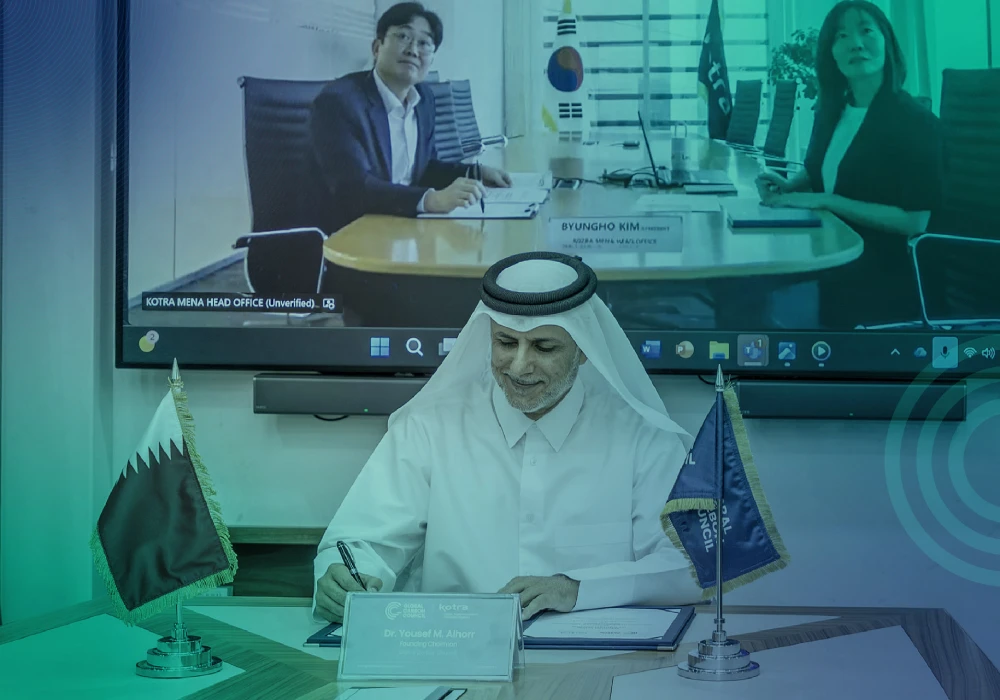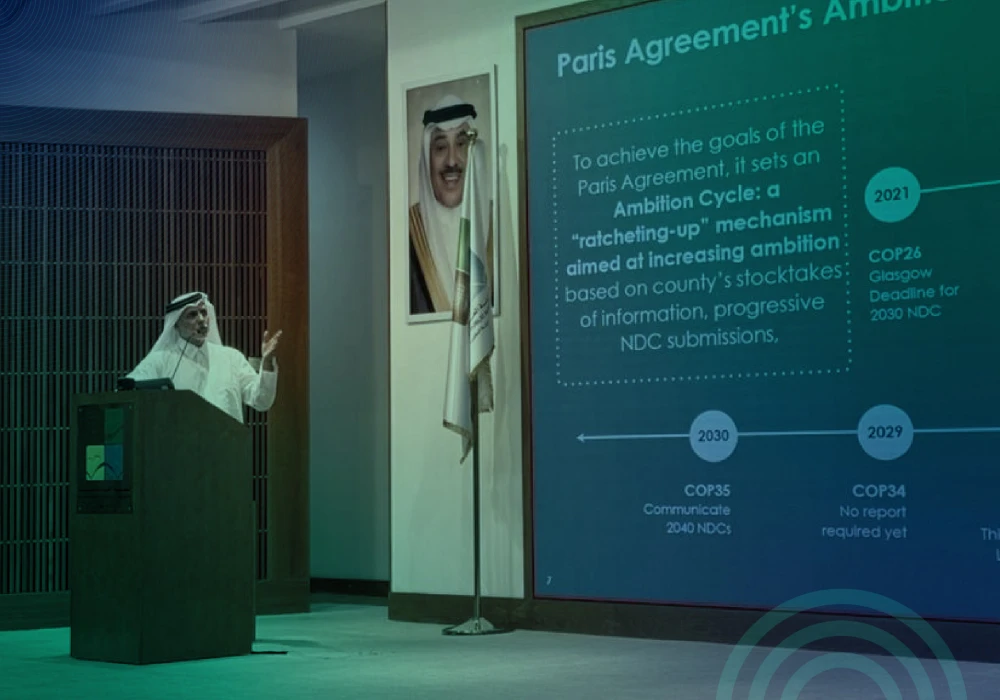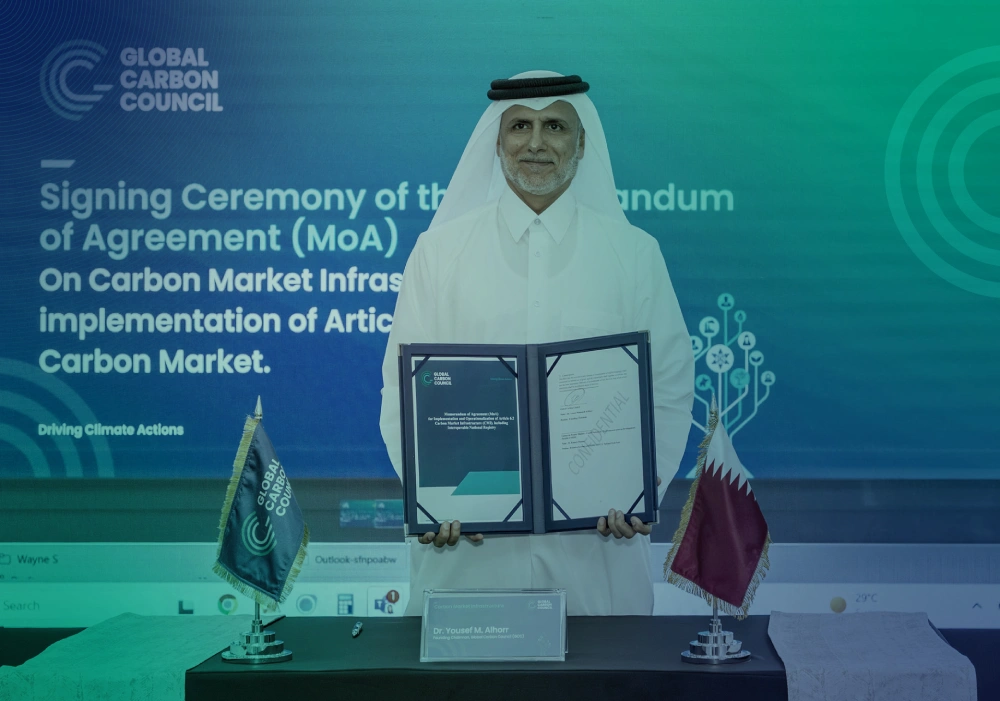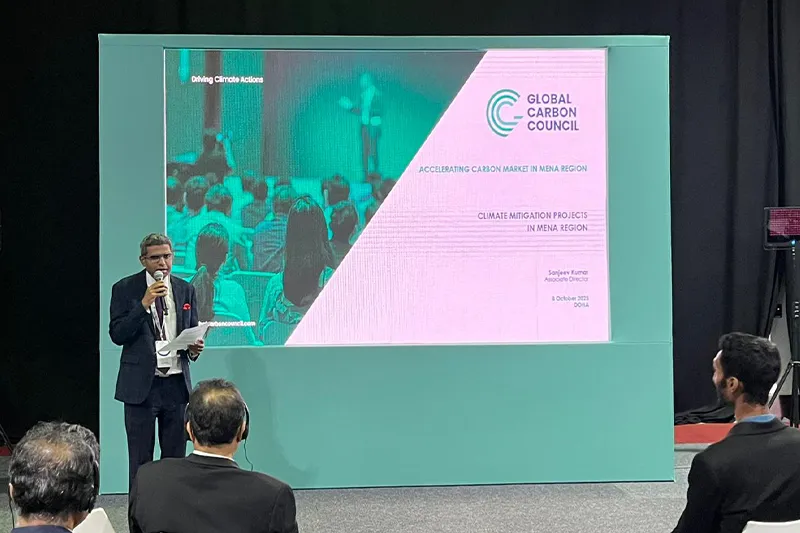
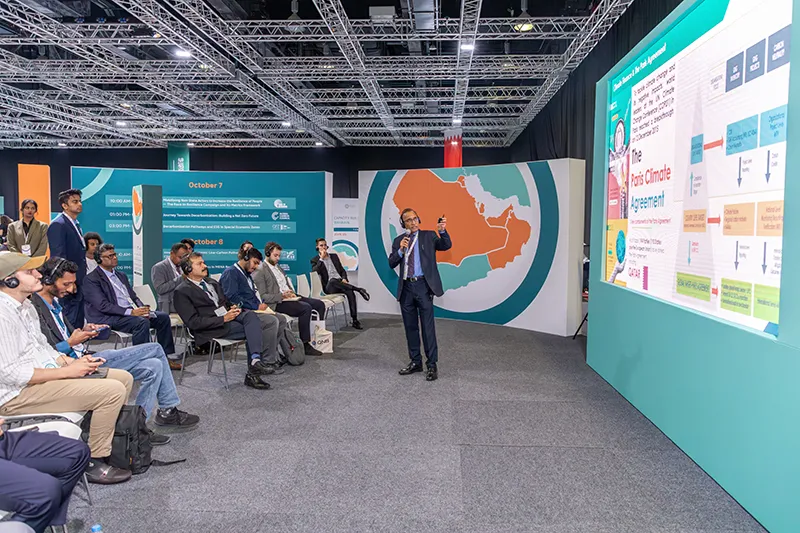
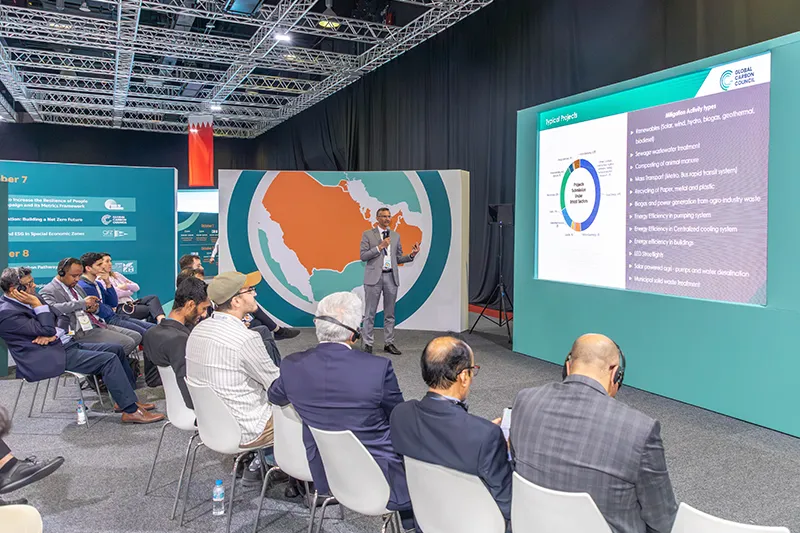
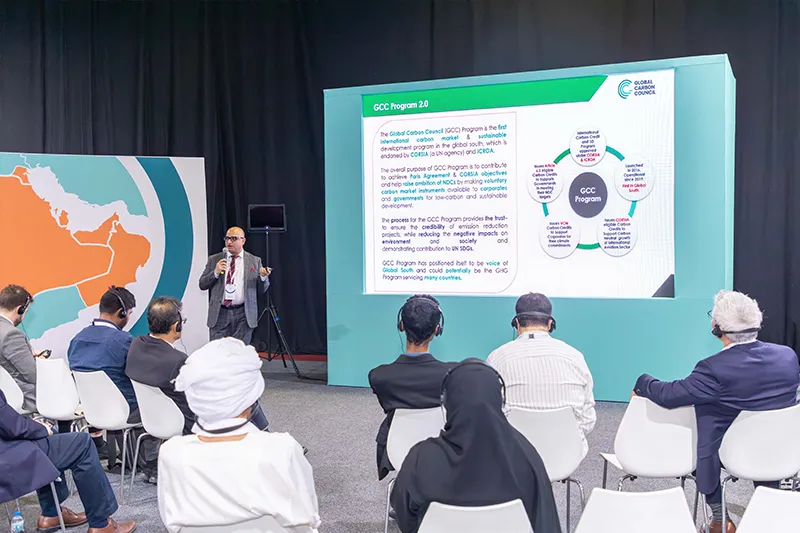
As part of the Qatar National Dialogue on Climate Change (QNDCC) 2025, the Global Carbon Council (GCC), in partnership with the Earthna Center for a Sustainable Future, Qatar Foundation, hosted a capacity-building workshop titled “Accelerating Carbon Markets in the MENA Region.”
The workshop convened policymakers, climate finance leaders, technical experts, and project developers, with Mr. Joseph Prakash, Director, GCC moderating the sessions. The focus was on strengthening regional capacity for high-integrity carbon markets and sustainable development.
Carbon Market Overview
Mr. Hemant Nandanpawar, Senior Director at GCC, provided a detailed overview of the global and regional carbon market landscape. He highlighted the visible impacts of climate change — including record global temperatures, rising sea levels, and increased extreme weather events — emphasizing the urgent need for action.
He outlined the Paris Agreement and Nationally Determined Contributions (NDCs), noting that Qatar aims to reduce 25% of its GHG emissions by 2030 through 36 mitigation measures and over 300 adaptation measures. Mr. Nandanpawar explained that carbon markets are central to financing and sustaining emission reduction projects, as each carbon credit represents a verified reduction, avoidance, or sequestration of 1 tCO₂e.
He also discussed carbon finance and pricing mechanisms, pointing out that while carbon prices have nearly doubled in the past decade, the majority of emissions remain unpriced. GCC’s carbon market enables private and public investment to flow into projects, ensuring long-term sustainability and impact.
Opportunities highlighted include:
- Retrofitting buildings with energy-efficient systems and smart technology
- Electrifying transport and integrating renewable energy
- Carbon sequestration through nature-based solutions (mangrove, seagrass, saltmarsh restoration)
- AI-driven logistics, carbon capture systems, and coastal resilience projects
- Participation in international mechanisms like ITMOs and IMO’s market-based measures
Climate Mitigation Projects in the MENA Region
Mr. Sanjeev Kumar, Associate Director, Methodologies at GCC, highlighted the MENA region’s enormous potential for climate mitigation projects. He presented GCC’s methodology framework covering renewable energy, energy efficiency, waste management, sustainable transport, carbon capture, and nature-based solutions like afforestation and mangrove restoration.
Featured GCC-projects include:
- Dumat Al Jandal Wind Project, Saudi Arabia
- Benban Solar Park, Egypt
- TAZA Wind Power Plant, Morocco
- Methane Abatement at Baladna Composting Project, Qatar
These examples showcase how GCC methodologies and its digital project portal enable developers to access international carbon markets, mobilize investment, and deliver measurable environmental impact.
GCC: MENA’s First Voluntary Carbon Market Program
Mr. Amit Thusu, Senior Director at GCC, led the capacity-building session on GCC Program 2.0 — the first international carbon market initiative in the Global South, endorsed by CORSIA and ICROA. The program empowers corporates and governments to access high-integrity carbon credits to meet Paris Agreement objectives, advance NDCs, and contribute to UN Sustainable Development Goals.
GCC’s Transaction Registry, launched in July 2025 as part of the Carbon Action Data Trust, provides full transparency, traceability, and credibility in the issuance, transfer, and retirement of carbon credits, reinforcing GCC’s leadership in digital innovation and high-integrity carbon markets.
Other key highlights of GCC Program 2.0 include:
- Global Reach: Projects from 45+ countries across MENA, Asia, Africa, South America, and Eastern Europe
- Carbon Credits Issued: ~12.3 million, with over 1,500 projects submitted
- Innovative labels for environmental, social, and SDG contributions (EL+, SL+, SDG+)
- Compliance with CORSIA, Article 6.2, and ICVCM to prevent double counting
- Strategic collaborations with the World Bank (ASCENT Program), regional carbon exchanges, and government partners to accelerate clean energy access and domestic carbon market readiness
Empowering Regional Stakeholders
The workshop underscored the MENA region’s strong potential for carbon market development. By combining GCC’s robust methodologies, digital infrastructure, and capacity-building initiatives, stakeholders are empowered to participate effectively in global carbon markets, drive measurable climate action, and accelerate progress toward net zero emissions.

